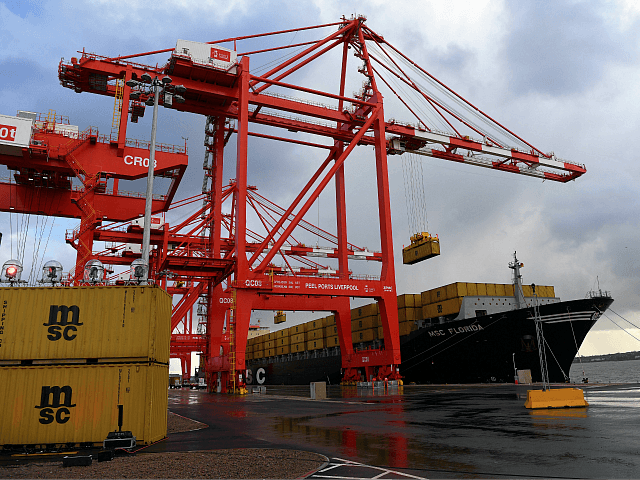The creation of seven “supercharged free ports” in the North of England once Britain leaves the EU and regains power over trade policy could create 150,000 new jobs and add an extra £9 billion to the economy, according to new research.
Modelling by former senior Treasury economist Chris Walker for Mace — the consultancy and construction firm responsible London’s Shard skyscraper, Dubai Expo 2020, and the 2019 Pan-American Games — suggests the establishment of free ports and special enterprise zones at Immingham and Grimsby, Hull Port, the Hull and Humber rivers, Tees and Hartlepool, Liverpool, the Tyne, and Manchester airport could boost annual trade by £12 billion, adding £9 billion to Britain’s GDP within 20 years.
Free ports – independent zones where goods may be manufactured, imported, and exported free from customs and import tariffs – could have a profound effect on the North of England. Once part of the country’s industrial heartland but now relatively impoverished compared to the South, they could increase the regional economy by the equivalent of £1,500 a year for every Northern household.
In addition to preventing its member-states from striking bilateral trade agreements with third countries, the EU also makes innovative trade-boosting initiatives such as free ports difficult to establish in a meaningful way, through its Customs Union and the imposition of a Common Commercial Policy, Common External Tariff, and regulations designed to prevent one member-state from becoming more competitive than another.
Senior ministers including Trade secretary Liam Fox and Chief Secretary to the Treasury Liz Truss are said to be interested in taking advantage of the economic freedoms Britain will enjoy after Brexit to establish free ports, but are keeping fairly quiet about it — partly because of concerns Brussels will demand they are banned as a condition of the pending UK-EU deal, and partly because Brussels insists it is illegal for Britain to prepare them before it actually leaves the EU.
“As we leave the EU it is vital that we maximise our global trading potential,” commented Hartlepool MP Mike Hill, whose constituency could stand to reap serious benefits from the proposals.
“There is plenty of talk about rebalancing the UK economy towards the North, but not enough action,” he added.
“Ports like Hartlepool have bags of potential and the proposal could lead to new opportunities for local people, as well as new jobs, apprenticeships and investment.”
Post-Brexit free ports have the potential to make even greater contributions to the British economy beyond the North of England, particularly in cities such as Glasgow, on Scotland’s west coast.
Formerly a hub for industry, shipping, and trade regarded as the ‘Second City of the British Empire’, a Glaswegian free port would be geographically well-placed to take advantage of a mooted free trade deal with the United States after Brexit.
The Northern American superpower is already Britain’s biggest individual partner for trade an investment, and President Donald J. Trump — unlike predecessor Barack Obama and his would-be successor Hillary Clinton — is extremely keen to strike a British-American trade agreement.
A free port in Belfast, in the British province of Northern Ireland, could also reap benefits from such a deal.

COMMENTS
Please let us know if you're having issues with commenting.